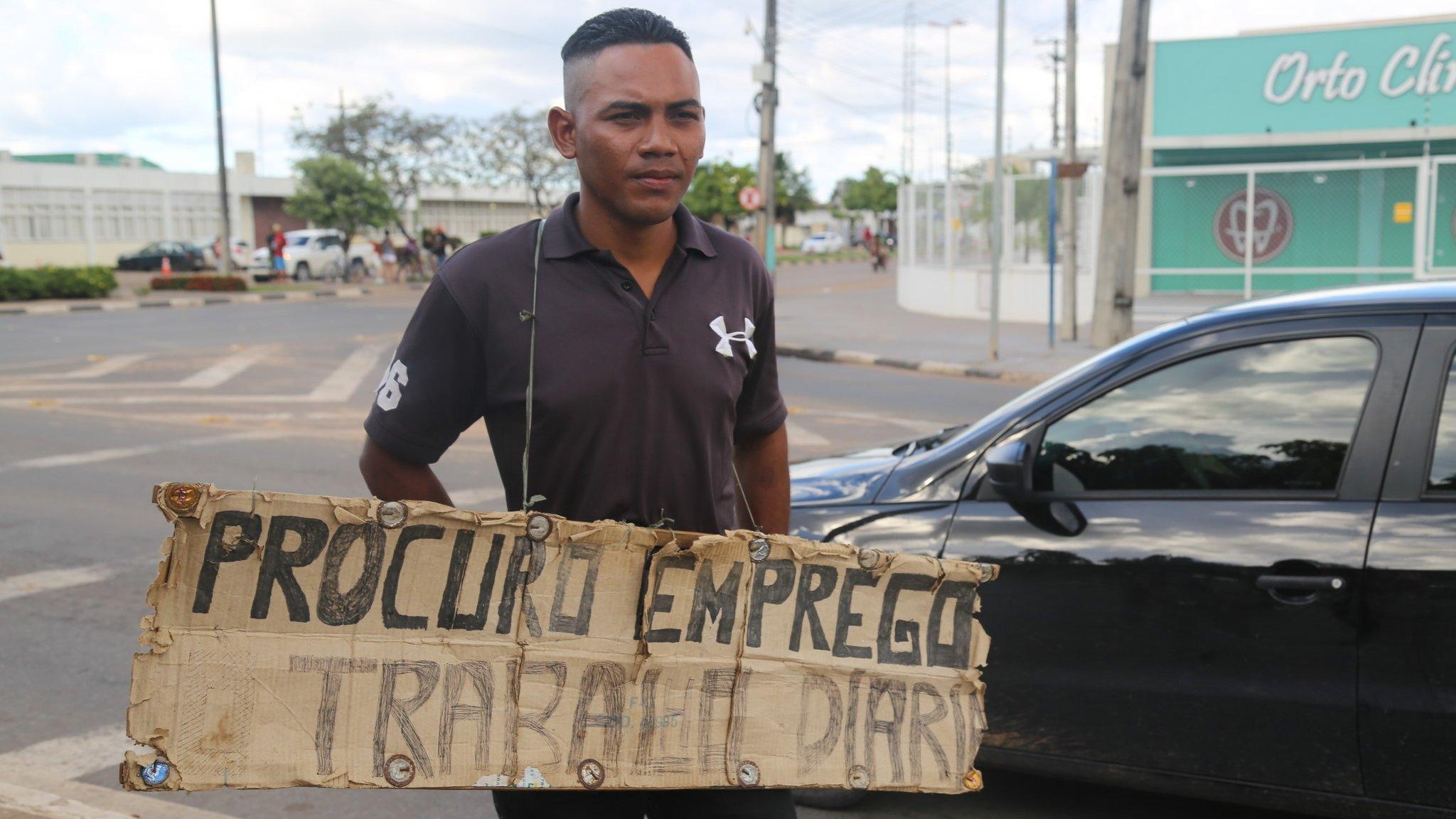Venezuela: Caracas after the chaos remains stressful
- Published
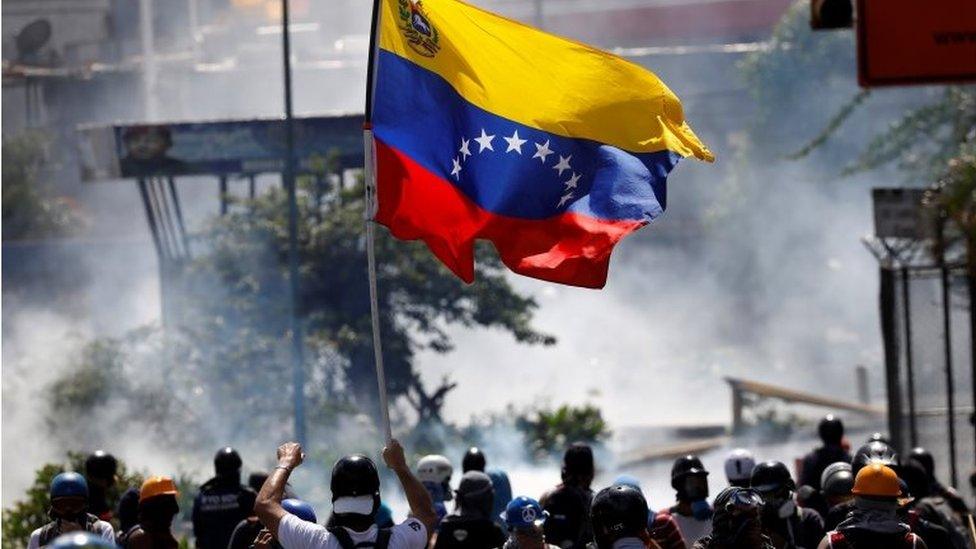
While mass anti-government protests have subsided, life in Caracas remains stressful
This year more than most, life in Venezuela has been characterised by chaos.
The recent turmoil has been well documented, from violent protests to tear gas and riot police.
However, now that the demonstrations have ended, a semblance of normal life has begun to return to Caracas.
For many Venezuelan families, "normal life" includes an afternoon at the baseball.
Before the first pitch in the game between Leones of Caracas and the Bravos of Margarita, the stadium rose as one for the national anthem.
It was a rare moment of unity in an otherwise disjointed and polarised country.
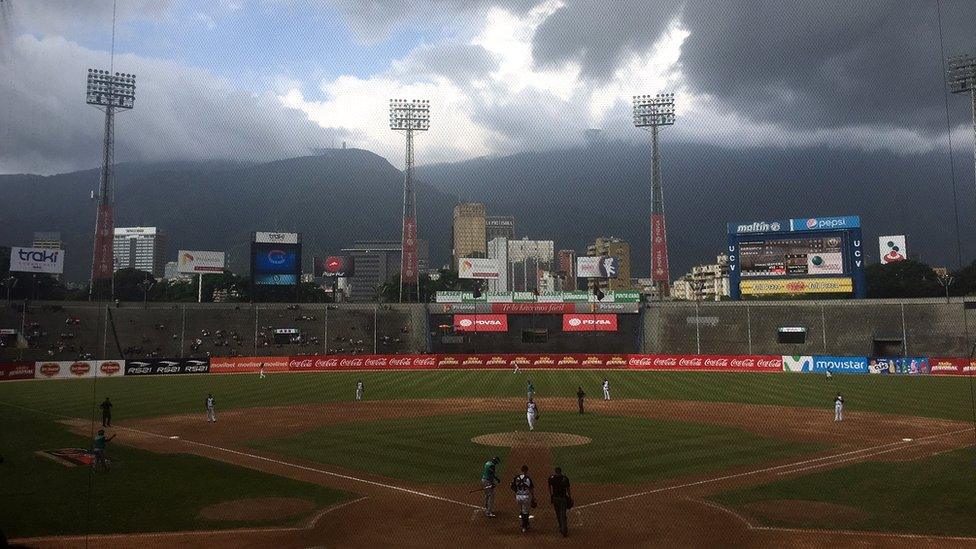
Going to a baseball game is an escape from everyday problems
"People use baseball to get away from their problems," says Diego Castillo, part of the commentary team at Unión Radio.
Still, even the national game is not immune to the issues affecting millions of ordinary Venezuelans.
Many tend to avoid the night games, because going home from the stadium after dark is too dangerous.
"This season we've also seen much smaller crowds because of the inflation. It's very expensive for people to come to the games so they watch them at home instead," Mr Castillo says.
Cost cutting
It is not just the fans who are feeling the pinch.
The league itself is in trouble. With Venezuela's economy in free-fall, teams now receive fewer gate receipts from the turnstiles each week. Even the state-run energy company, PDVSA, has become a sponsor as the government attempts to keep the league afloat.
Luis Avila, the chairman of Leones del Caracas, says his team is cutting costs everywhere it can think of.
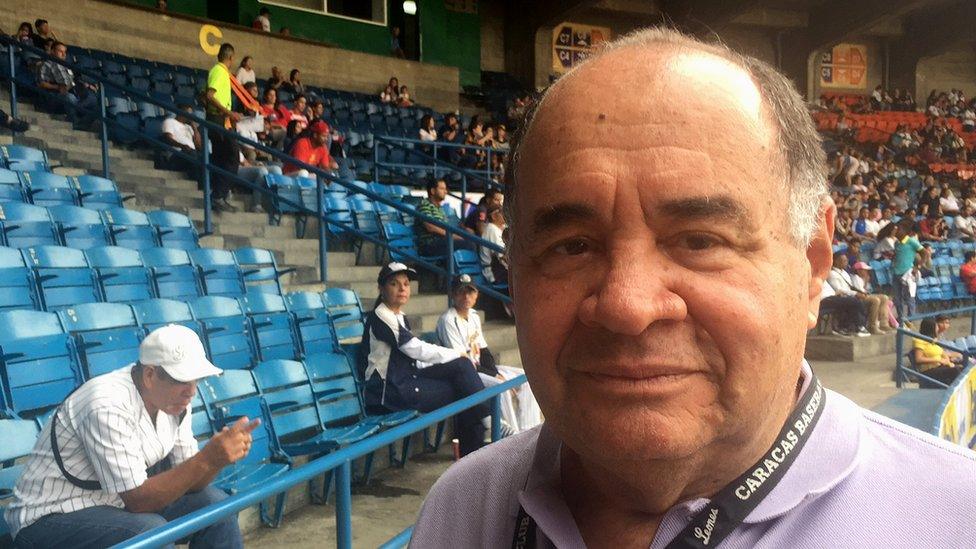
Luis Avila says money is scarce at Leones del Caracas
"Hospitality, meals, logistics, transport, hotels, stadium rent," he reels off a list.
"Our expenses have gone up by 500% or 700% lately."
Like most CEOs of big Venezuelan businesses, Mr Avila is critical of the policies of the government of Nicolás Maduro and blames it for the economic crisis.
However, Sunday's regional election has strengthened President Maduro's hand, even if the opposition is crying foul.
Read: Venezuela socialists win governor seats amid fraud claims
The result raises the spectre of more violence in Venezuela.
During several months of protests, more than 120 people were killed amid pitched battles with riot police.
Through it all, Venezuela's controversial socialist government remained unbowed and unrepentant, blaming the opposition for creating instability in the country.
Although such intense levels of chaos have passed for now, Caracas is still a very stressful place to live.
When the noise and tension of the capital become too much, many residents head towards what they call "the lungs of the city", Ávila National Park.
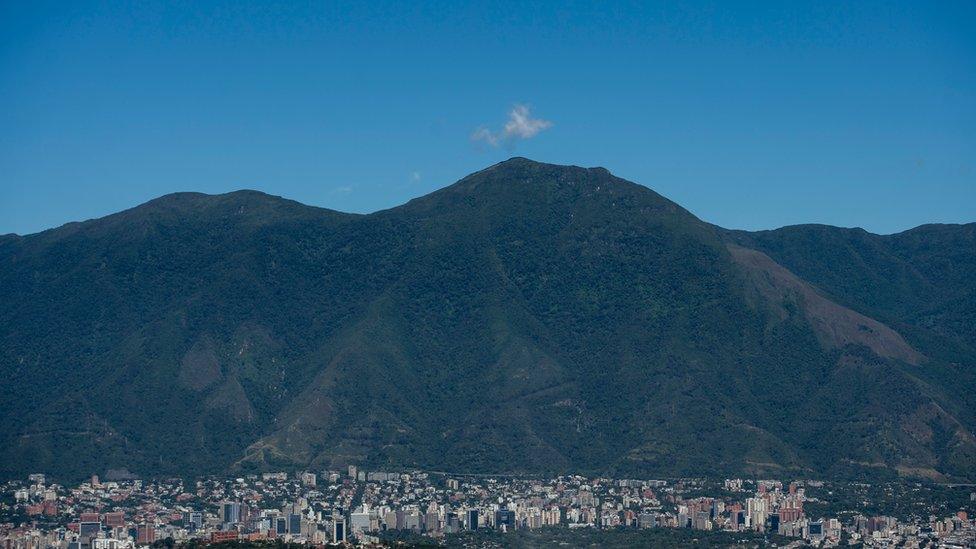
El Ávila National Park offers residents of traffic-choked Caracas an escape
It is a magnificent backdrop which transforms Caracas from a sprawling urban metropolis to one of the most unique cities in Latin America.
In the late afternoons, people walk up the different mountain pathways to breathe fresh air and de-stress.
"This place relaxes me and it's good to get rid of all those toxic things in the city," says Mercedes Bermúdez, referring as much to the politics of confrontation in Caracas as its snarled traffic.
Hemmed in by crime
"Caracas has always been stressful, more so with the current social and political climate," echoes Dr José Manuel Pardo.
"Beyond climbing the Ávila, what else can we do? The crime keeps us hemmed in our homes at night."
Dr Pardo is in his 60s but his complaint is one that young people in Venezuela often, and quite rightly, make.
Outside a new skate park that has provided at least one safe place for teenagers to hang out, I met Christian and David.
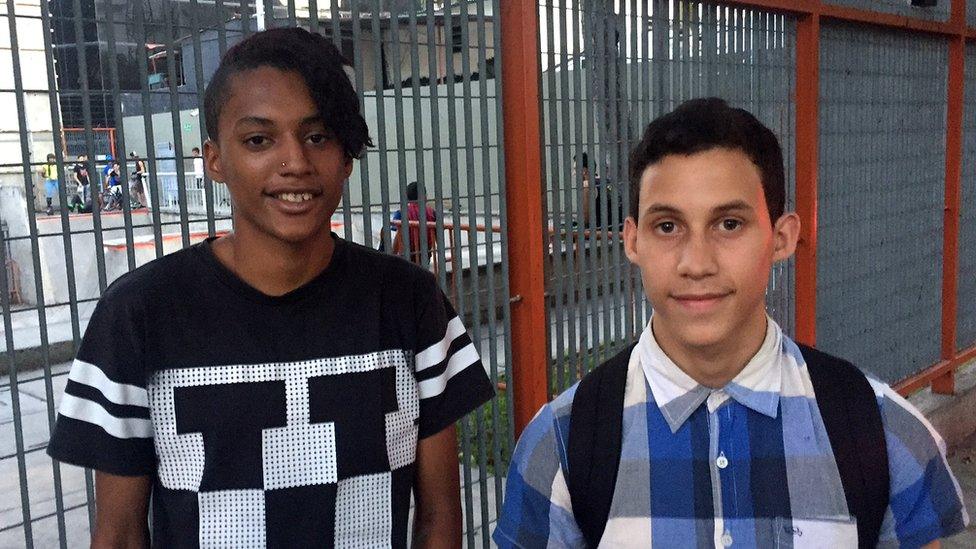
Christian and David were born in the year the socialist PSUV party came into power
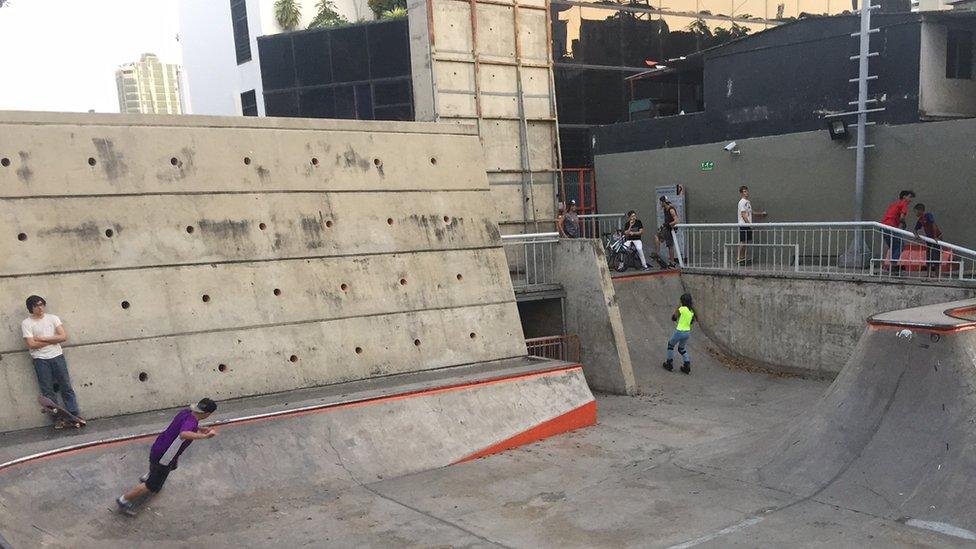
The skate park provides a safe space for teenagers
Both born the year former Venezuelan President Hugo Chávez took power, all they have known is the socialist government.
Now 18, they are first time voters, or rather non-voters.
Not only did they not vote, they have decided they would not be casting their ballots in the future either.
But their abstention goes well beyond the generic indifference towards politics of many millennials.
"I don't believe either side," says David of the socialist party and the opposition coalition.
"You have one side which obviously doesn't care about the people. And on the other you have those who just want to stay in power."
"I'm clear that neither side cares about me or my family or Venezuela at all. It's just lies."
Exodus
According to the National Electoral Council, the government's margin of victory was just a few thousand votes in some states.
So maybe that political exhaustion made the difference in several places.
More worryingly, though, is the exodus of Venezuelans who have left the country search of better opportunities in recent months.
Whatever their political colours, people are tired of the rampant inflation, scarcity of food and violent crime.
With the government's grip on power at the state level as strong as it was during the Chávez era, many see no change to their circumstances on the horizon.
- Published13 October 2017

- Published28 September 2017
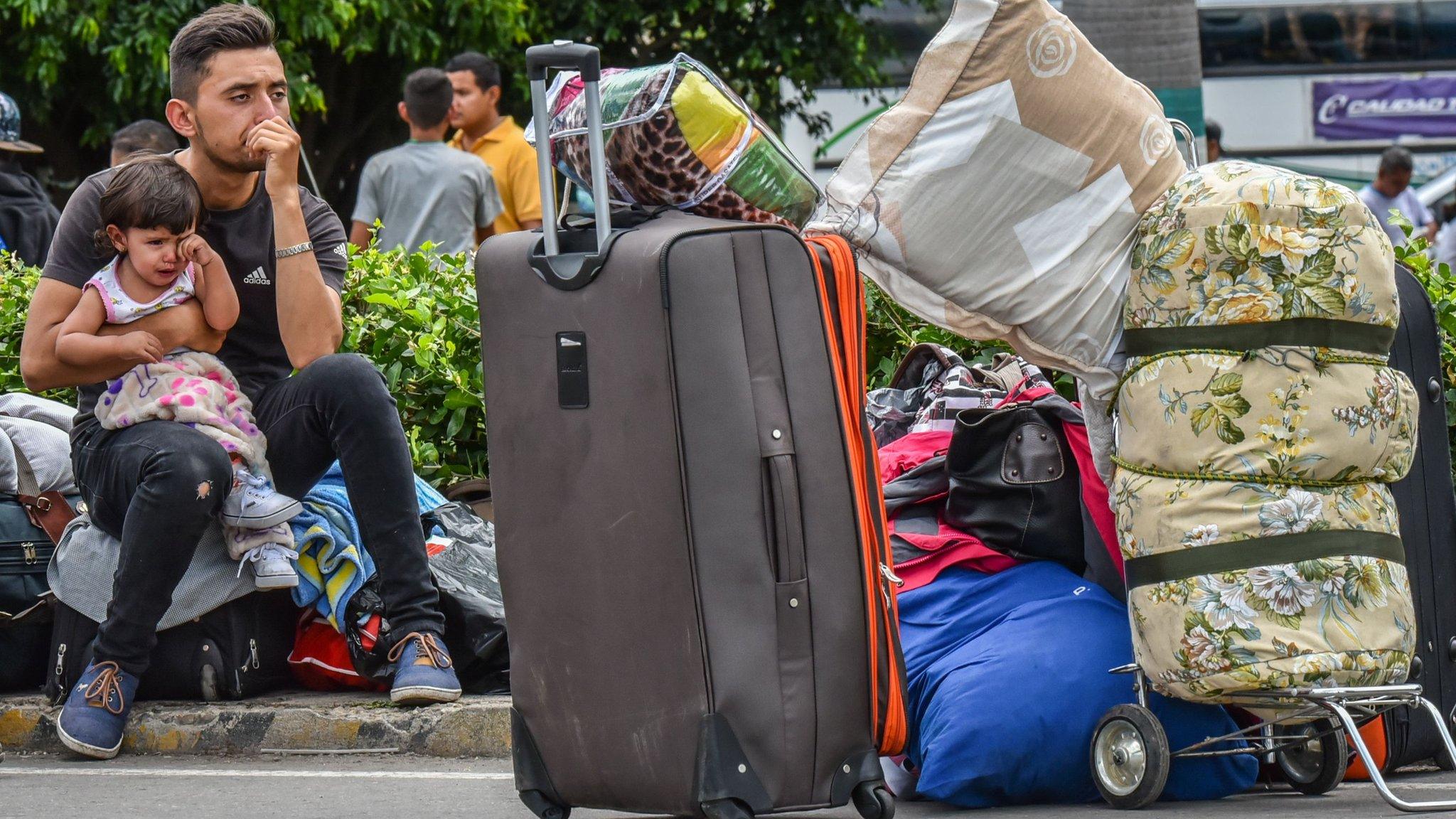
- Published19 July 2017
